All Departments
- Aortic valve stenosis (Aortic stenosis)
- arteriovenous malformations
- Avascular Necrosis
- Best cosmetic dentistry in Iran| Dental Treatment in Iran
- Breast Augmentation in Iran|Breast implant in iran
- Breast Reduction surgery
- Cancer in Iran: oncology in Iran
- Cardiology
- Cataract surgery in Iran
- Cochlear Implant Surgery in Iran
- Cosmetic Laser
- Cosmetic Surgery
- Ear cosmetic surgery
- Eye Care
- Eyelid surgery (Blepharoplasty)
- General Heart Surgery in Iran
- General surgery in Iran
- Glaucoma Treatment In Iran
- Hair Transplant
- Heart valve surgery
- lasik Eye Surgery
- Liposuction
- Non-Surgical Cosmetic procedures in iran
- Organ Transplantation in Iran
- Orthopedic
- Paget disease of bone
- Pediatrics
- Plastic surgery
- Psychiatry
- Radiology
- Rhinoplasty surgery in iran
- Shoulder Replacement Surgery
- SkinCare Treatment
- Spinal cord injury
- urolithiasis procedure in iran
- Urology
- Varicocelectomy
Opening Hours
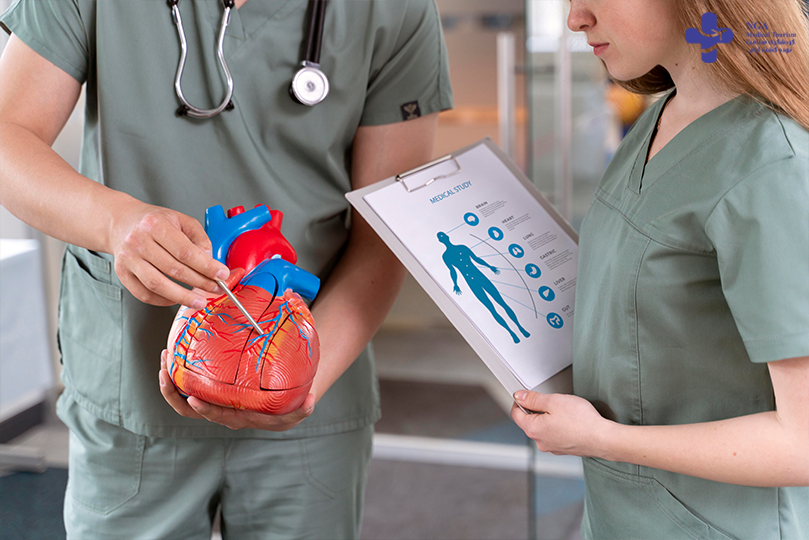
Heart valve surgery
Heart valve surgery in Iran
Heart valve surgery in Iran is a medical procedure that is used to repair or replace damaged or diseased heart valves. The heart has four valves – the aortic valve, the mitral valve, the tricuspid valve, and the pulmonary valve – which control the flow of blood through the heart. When one or more of these valves are not functioning properly, it can cause problems such as heart failure or arrhythmias.
Heart valve surgery in Iran may be recommended for a variety of reasons, including:
- Stenosis (narrowing) of the valve
- Regurgitation (leakage) of the valve
- Prolapse (bulging) of the valve
- Endocarditis (infection of the valve)
- Congenital valve defects
The surgery can be performed as an open-heart procedure, where the chest is opened and the heart is stopped while the valve is repaired or replaced, or as a minimally invasive procedure, where smaller incisions are made and specialized instruments are used to repair or replace the valve.
Depending on the type of valve surgery and the patient’s overall health, recovery time can vary. However, most patients will need to stay in the hospital for several days following the surgery and will need to follow a strict rehabilitation program to help them recover.
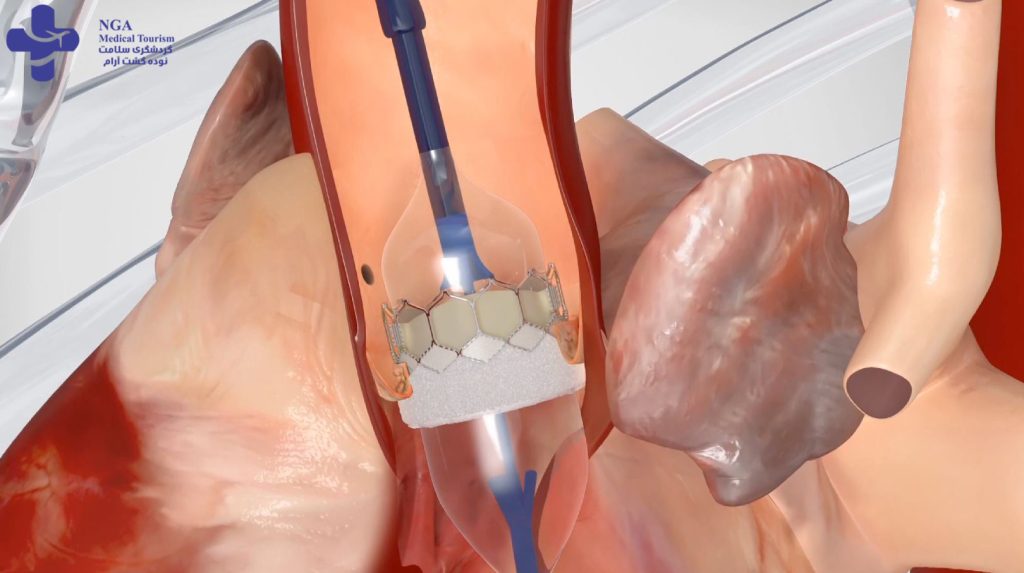
Heart valve replacement surgery
Heart valve replacement is a surgical procedure in which a damaged or diseased heart valve is replaced with a new artificial valve. This procedure is typically reserved for patients with severe valve damage or disease that cannot be repaired through other means.
There are two main types of heart valve replacement surgery: mechanical valve replacement and biological valve replacement.
Mechanical valve replacement involves the placement of a valve made of metal or other synthetic materials. These valves are durable and long-lasting, but patients who receive them must take blood-thinning medications for the rest of their lives to prevent blood clots from forming around the valve.
Biological valve replacement involves the placement of a valve made from animal tissue or human tissue (usually from a donated heart valve). These valves do not require lifelong blood-thinning medication, but they may not last as long as mechanical valves and may need to be replaced in the future.
Heart valve replacement surgery is typically performed as an open-heart procedure, which means that the chest is opened and the heart is stopped temporarily while the valve is replaced. However, some patients may be candidates for minimally invasive valve replacement, which involves smaller incisions and a shorter recovery time.
Recovery after heart valve replacement surgery can take several weeks, and patients will need to follow a rehabilitation program to help them recover. With proper care and management, many patients are able to return to their normal activities and enjoy improved heart function and quality of life after valve replacement surgery.

Types of
Heart
Valve
Surgery
in Iran
Iran, has various types of heart valve surgeries are performed to treat heart valve diseases. The specific type of surgery recommended depends on the underlying condition and the extent of valve damage. Here are some common types of heart valve surgeries conducted in Iran:
Whenever possible, surgeons prefer to repair a damaged heart valve rather than replace it. Valve repair techniques aim to restore the valve’s normal function by correcting structural abnormalities. The repairs may involve reshaping valve leaflets, removing excess tissue, or using tissue patches to reconstruct or support the valve.
Open heart surgery is a complex procedure performed in Iran to treat various cardiovascular conditions. It involves making an incision through the sternum (breastbone) to access the heart and perform surgical interventions. for more information about open heart surgery in Iran click.
Transcatheter Aortic Valve Replacement (TAVR) is a minimally invasive procedure used to replace the aortic valve. It involves inserting a catheter through a blood vessel, typically in the groin, and guiding it to the heart. The new valve is delivered through the catheter and positioned within the diseased valve, thereby restoring proper functioning. TAVR is generally suitable for patients considered high-risk for traditional open-heart surgery.
General heart surgery in Iran encompasses a wide range of procedures aimed at treating various heart conditions. These surgeries are typically performed by highly skilled cardiac surgeons in specialized hospitals and cardiac centers.
for more information click General heart surgery in Iran
Heart valve leaking surgery
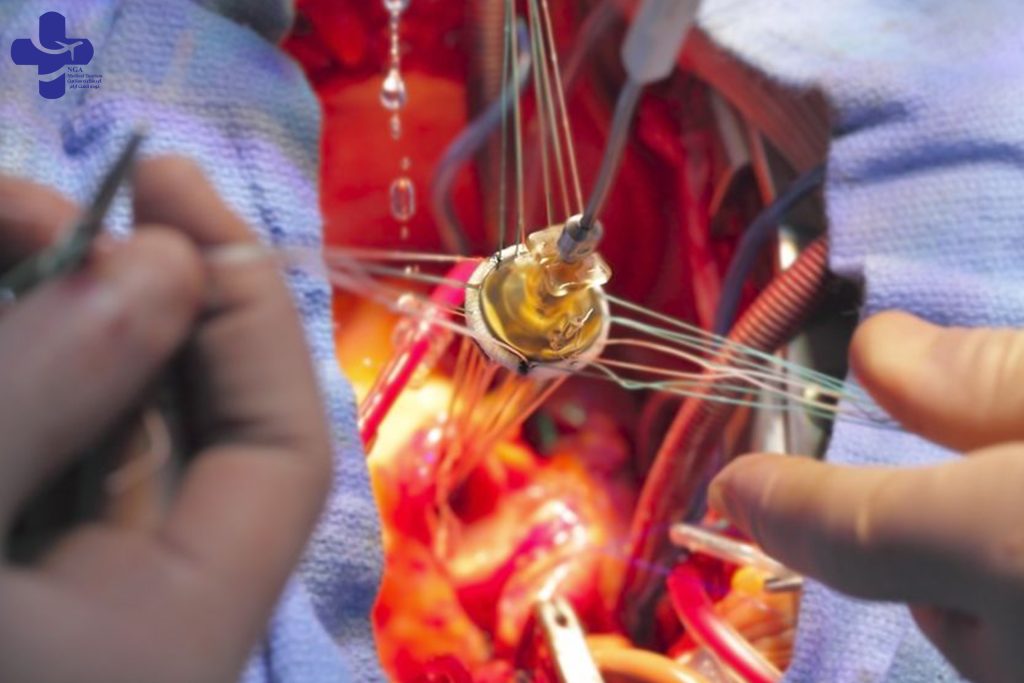
Heart valve leaking surgery is a medical procedure that is used to repair or replace a heart valve that is leaking. Heart valve leakage, also known as valve regurgitation, occurs when a heart valve doesn’t close properly, causing blood to flow backwards through the valve. This can put extra strain on the heart and lead to complications such as heart failure.
The type of surgery used to treat heart valve leakage depends on the severity of the leakage and the overall health of the patient. In some cases, the valve can be repaired through a minimally invasive procedure that involves making small incisions in the chest and using specialized instruments to repair the valve. This is known as a valve repair surgery.
In more severe cases, the valve may need to be replaced with an artificial valve. This is known as a valve replacement surgery. There are two main types of valve replacement surgery: mechanical valve replacement and biological valve replacement, as I explained in my previous answer.
heart valve surgery scar
Heart valve surgery typically involves making an incision in the chest to access the heart. The size and location of the incision will depend on the type of surgery being performed, but in most cases, the incision will be several inches long and located in the center of the chest.
As with any surgery, there will be a scar at the site of the incision. The scar may be raised or indented, and may be pink or red in color. Over time, the scar will fade and become less noticeable, but it may never completely disappear.
After the surgery, it’s important to take care of the incision site to promote proper healing and reduce scarring. This may involve keeping the incision clean and dry, avoiding activities that could put stress on the incision, and following any other instructions provided by the healthcare team. In some cases, patients may choose to undergo scar revision surgery to improve the appearance of the scar.
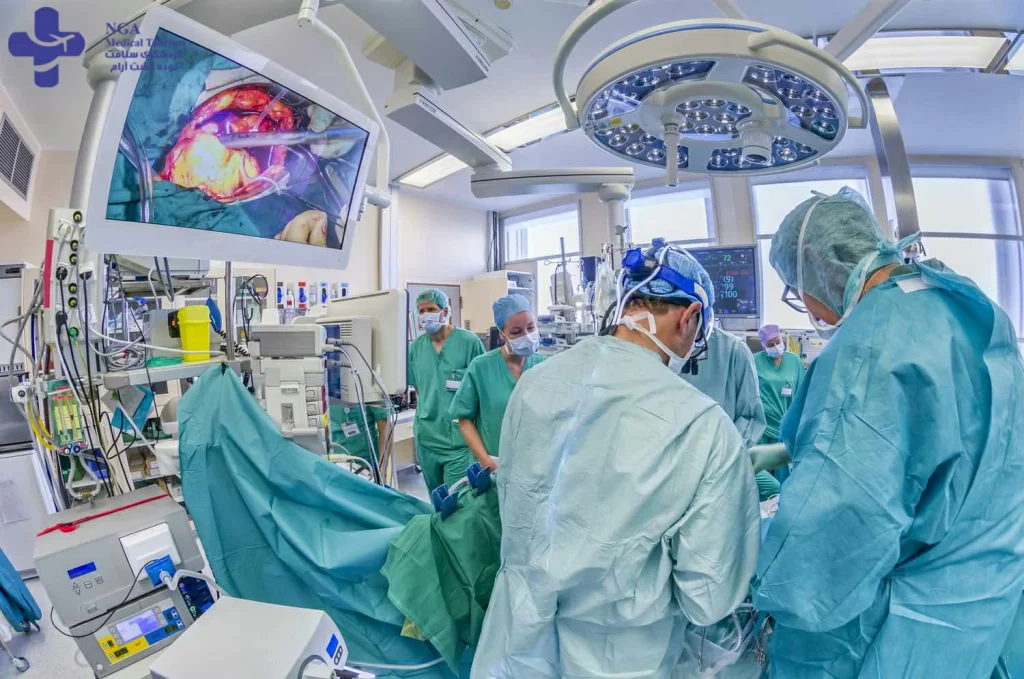
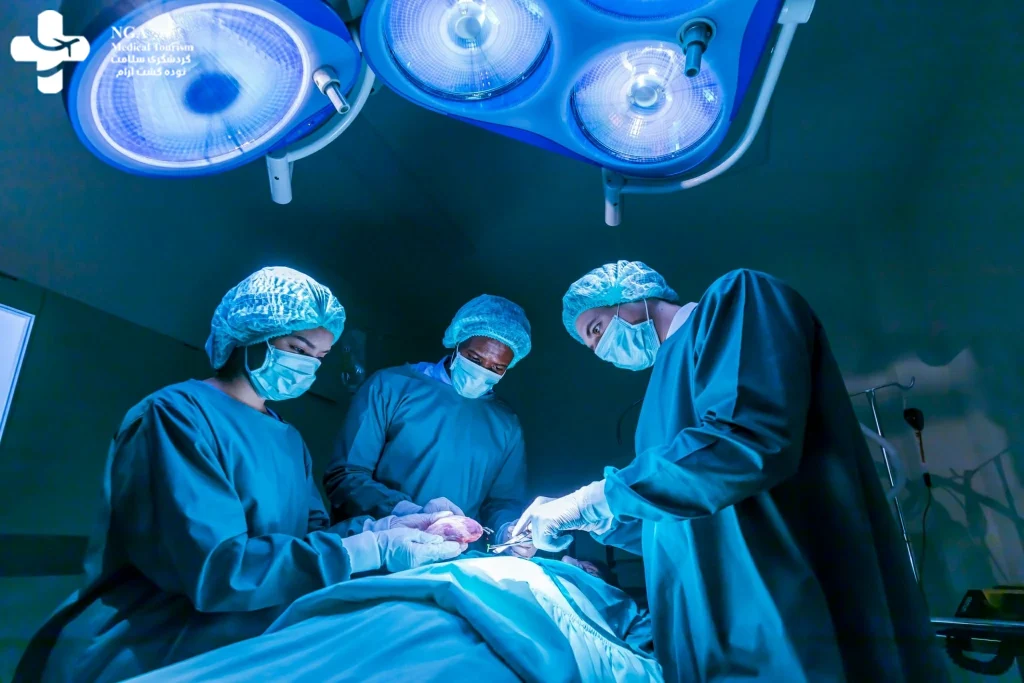
how to fix a leaky heart valve without surgery ?
While surgery is often the most effective treatment for a leaky heart valve, there are some non-surgical options that can help manage the condition. It’s important to note that the suitability of these options depends on the severity of the valve leakage, the specific valve involved, and the individual patient’s circumstances. Here are a few non-surgical approaches that may be considered:
Medications , Lifestyle Modifications , Close Monitoring , Interventional Procedures t’s important to consult with a qualified cardiologist or cardiac surgeon to determine the most appropriate treatment approach for a leaky heart valve.
Considering Heart Valve Surgery in Iran: Advantages and Opportunities
When considering heart valve surgery, venturing abroad for medical treatment may seem overwhelming. However, Iran has emerged as a favorable destination for individuals seeking cardiac interventions, particularly heart valve surgery. Let’s explore the reasons why Iran has gained recognition in the field of cardiovascular care.
Renowned Medical Professionals: Iran boasts a pool of highly skilled cardiologists and cardiac surgeons who possess extensive expertise in performing heart valve surgeries. These professionals have received comprehensive training and are well-versed in the latest advancements in cardiac procedures. Their proficiency and experience contribute to successful outcomes and patient satisfaction.
cost of heart valve surgery in Iran
Exceptional Quality at Lower Costs. Contact us to inquire about the cost of heart valve surgery in Iran. Discover cost-effective options without compromising on the quality of healthcare.
Shorter Wait Times
In some countries, patients may face prolonged wait times for heart valve surgery due to high demand or limited resources. However, in Iran, the waiting period for cardiac procedures is often significantly shorter. This allows patients to receive timely treatment and avoid potential complications associated with prolonged delays.
Medical Tourism Support
Iran has recognized the potential of medical tourism and has established dedicated agencies and organizations to facilitate the process for international patients. These entities assist with travel arrangements, visa processes, accommodation, and language interpretation, making it easier for patients to navigate their medical journey in Iran.
High-Quality Healthcare Facilities
Iran is home to reputable hospitals and specialized cardiac centers equipped with advanced infrastructure and cutting-edge medical technology. These facilities adhere to stringent international standards, ensuring a safe and sterile environment for surgeries. Additionally, the supportive and compassionate staff provide personalized care, ensuring patients feel comfortable and well-cared for throughout their treatment journey.
Your message will be reviewed by our doctors and specialist . We will get back to you within 24 Hours.
Nodeh Gasht Aram experts will answer your questions 24/7 , through online chat or by phone.
You get medical opinion and cost estimate
Nodeh Gasht Aram plan your trip.
We arrange your medical visa , flight, ticket, appointments, accommodation etc.
Booking various types of accommodation
interpreter
insurance
SIM & Internet
City Tour
Collaboration with different medical centers to get the best diagnosis and treatment by talent doctors and surgeons...
Post-treatment recuperation and check up .
After the completion of treatment and you return to your country, we will follow you around the clock.
The Road to Recovery: Life After Heart Valve Surgery
Undergoing heart valve surgery is a significant medical intervention that requires careful post-operative care and rehabilitation. After the surgery, patients enter a crucial phase of recovery, where they gradually regain their strength and adjust to their new heart valve. This article provides insights into the recovery process after heart valve surgery, highlighting key aspects such as hospital stay, medication management, lifestyle modifications, and the importance of cardiac rehabilitation.
Hospital Stay , Medication Management , Physical Activity and Lifestyle Modifications , Wound Care and Incision Management , Cardiac Rehabilitation and …
this are what you should do for the recovery we will explain each of them for you in the rest of our article about heart valve surgery in Iran.
Hospital stay
Following heart valve surgery, patients typically spend several days in the hospital for close monitoring and recovery. During this time, medical professionals will closely observe vital signs, administer pain medication, and monitor any potential complications. The length of the hospital stay may vary depending on the individual’s overall health, the type of procedure performed, and the progress made in the initial recovery phase.
Medication Management
Medication plays a crucial role in the post-operative phase of heart valve surgery. Patients will receive a range of medications aimed at preventing infection, reducing pain and inflammation, managing blood pressure, and preventing blood clots. It is essential to follow the prescribed medication schedule diligently and communicate any concerns or side effects to the healthcare team.
Physical Activity and Lifestyle Modifications
Gradual resumption of physical activity is an integral part of the recovery process. Initially, patients will be encouraged to engage in light activities such as short walks, gradually increasing the duration and intensity as advised by the healthcare team. It is important to follow the recommended guidelines and avoid straining the incision site or overexertion. Additionally, lifestyle modifications such as maintaining a heart-healthy diet, quitting smoking, managing stress, and achieving a healthy weight are crucial steps toward long-term recovery and overall well-being.
Wound Care and Incision Management
Proper wound care is essential to minimize the risk of infection and promote healing. Patients will receive detailed instructions on how to clean and care for the incision site, including when to change dressings and signs of potential complications. It is important to adhere to these guidelines and report any concerns to the healthcare team promptly.
Cardiac Rehabilitation
Participating in a cardiac rehabilitation program is highly recommended after heart valve surgery. These programs are designed to help patients regain strength, improve cardiovascular fitness, and reduce the risk of future heart-related complications. Cardiac rehabilitation typically involves a combination of supervised exercise sessions, education on heart-healthy living, and emotional support to promote a successful recovery and a smooth transition back to daily life.
Frequently Asked Questions
Traditionally, open-heart surgery is used to repair or replace heart valves. This means that a large incision is made in the chest and the heart stopped for a time so that the surgeon can repair or replace the valve(s). Newer, less invasive techniques have been developed to replace or repair heart valves.
An aortic valve replacement is a major operation and occasionally the complications can be fatal. Overall, the risk of dying as a result of the procedure is estimated to be 2%. But this risk is far lower than the risk associated with leaving severe aortic disease untreated.
An aortic valve replacement involves removing a faulty or damaged valve and replacing it with a new valve made from synthetic materials or animal tissue. It’s a major operation that isn’t suitable for everyone and can take a long time to recover from.
- Valve repair surgery to fix the damaged or faulty valve, while preserving much of the person’s own tissue. …
- Valve replacement surgery to remove the faulty valve and replace it with a biological (pig, cow or human tissue) or mechanical (metal or carbon) valve.
Heart valve surgery requires use of a cardiopulmonary bypass, also known as a “heart-lung machine,” to temporarily take over the function of the heart and lungs, diverting blood from the heart so that the surgeon can operate. Mitral valve surgery typically takes one to four hours.
Recovering from valve surgery usually takes most people between 4 and 8 weeks.
Patients Can Live a Full and Healthy Life After Heart Valve Surgery | Blog | CHI Saint Joseph Health.
Valve repair or replacement is generally safe. However, as with any surgery or procedure, complications can occur. Possible risks associated with treatment include: Bleeding during or after treatment or damage to the blood vessels.

Angiography is a medical imaging technique used to visualize the blood vessels in the body, particularly the arteries and veins.Angiography is a medical imaging technique used to visualize the blood vessels in the body, particularly …

Angioplasty is a medical procedure used to treat narrowed or blocked blood vessels, typically arteries, and restore blood flow to the affected area. It is often performed as a follow-up to an angiography procedure when a blockage or narrowing is detected.

Heart bypass surgery, also known as coronary artery bypass graft (CABG) surgery, is a surgical procedure performed to improve blood flow to the heart muscle when the coronary arteries are severely blocked or narrowed. It is typically …

Heart valve replacement surgery is a surgical procedure performed to replace a damaged or diseased heart valve with an artificial valve or a biological tissue valve. The heart valves, including

Heart transplant surgery, also known as cardiac transplantation, is a surgical procedure in which a diseased or failing heart is replaced with a healthy heart from a deceased donor. It is typically performed …

Aortic aneurysm surgery is a procedure performed to repair or treat an aortic aneurysm, which is an abnormal bulging or dilation of the aorta, the largest artery in the body. Aortic aneurysms can occur in different sections…

Heart pacemaker surgery, also known as pacemaker implantation, is a procedure performed to treat abnormal heart rhythms or electrical conduction disorders. A pacemaker is a small electronic device that helps regulate …

Open heart surgery, also known as cardiac surgery, is a surgical procedure performed on the heart with the chest cavity opened. It involves accessing the heart directly to treat various conditions or perform corrective procedures.


